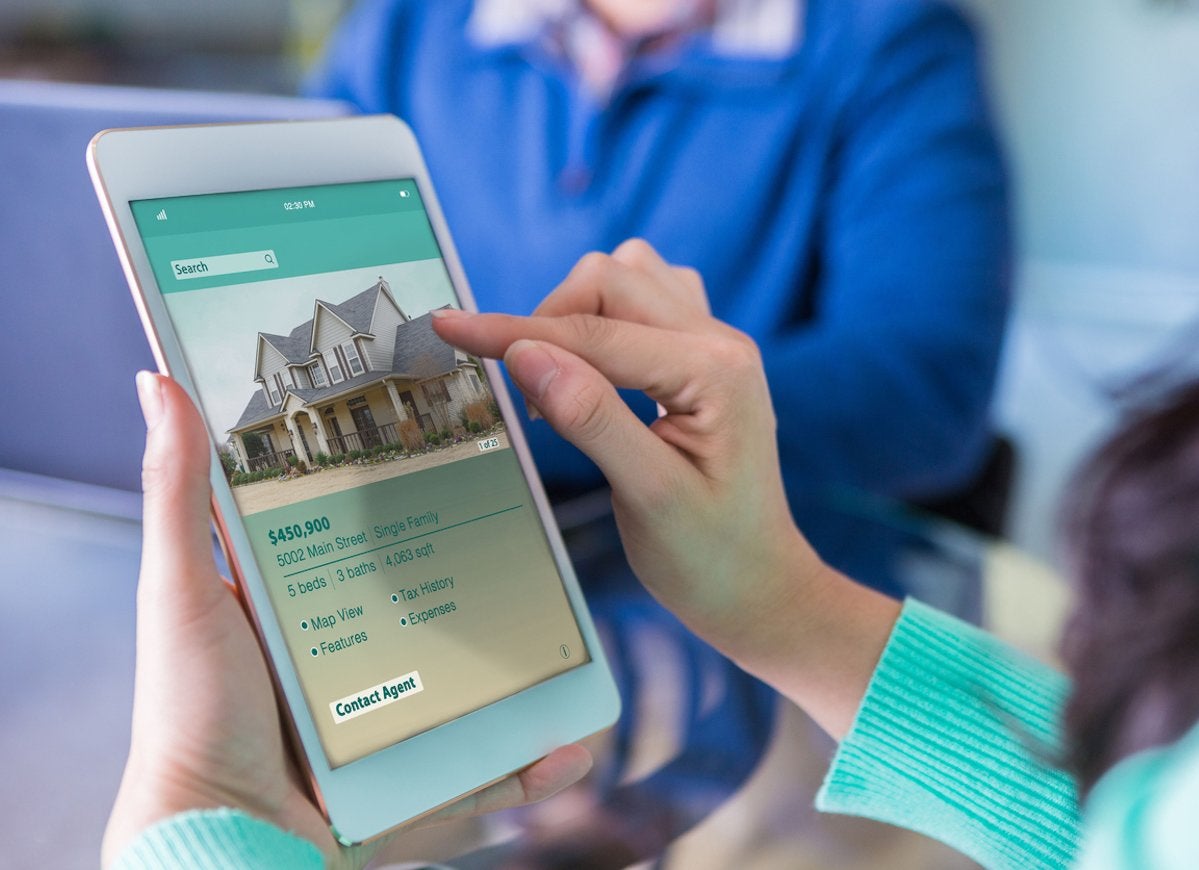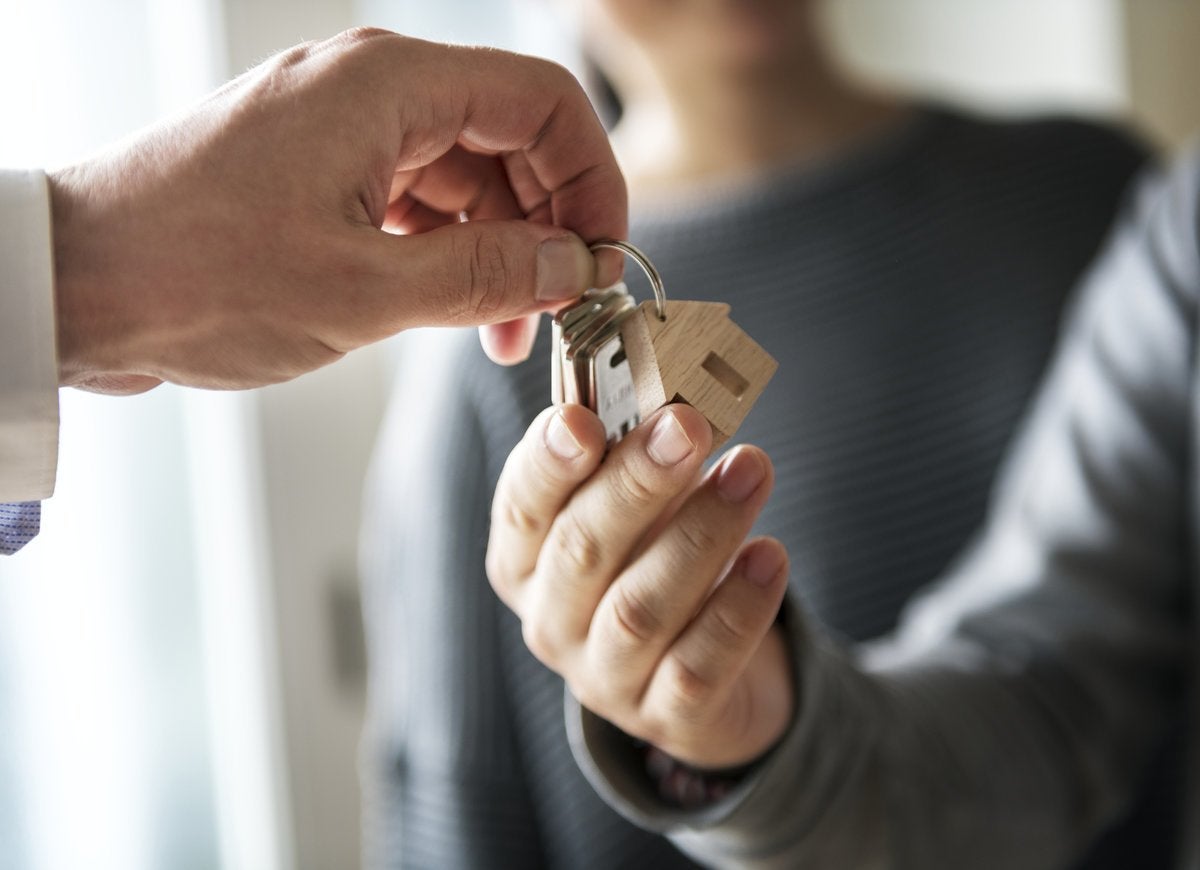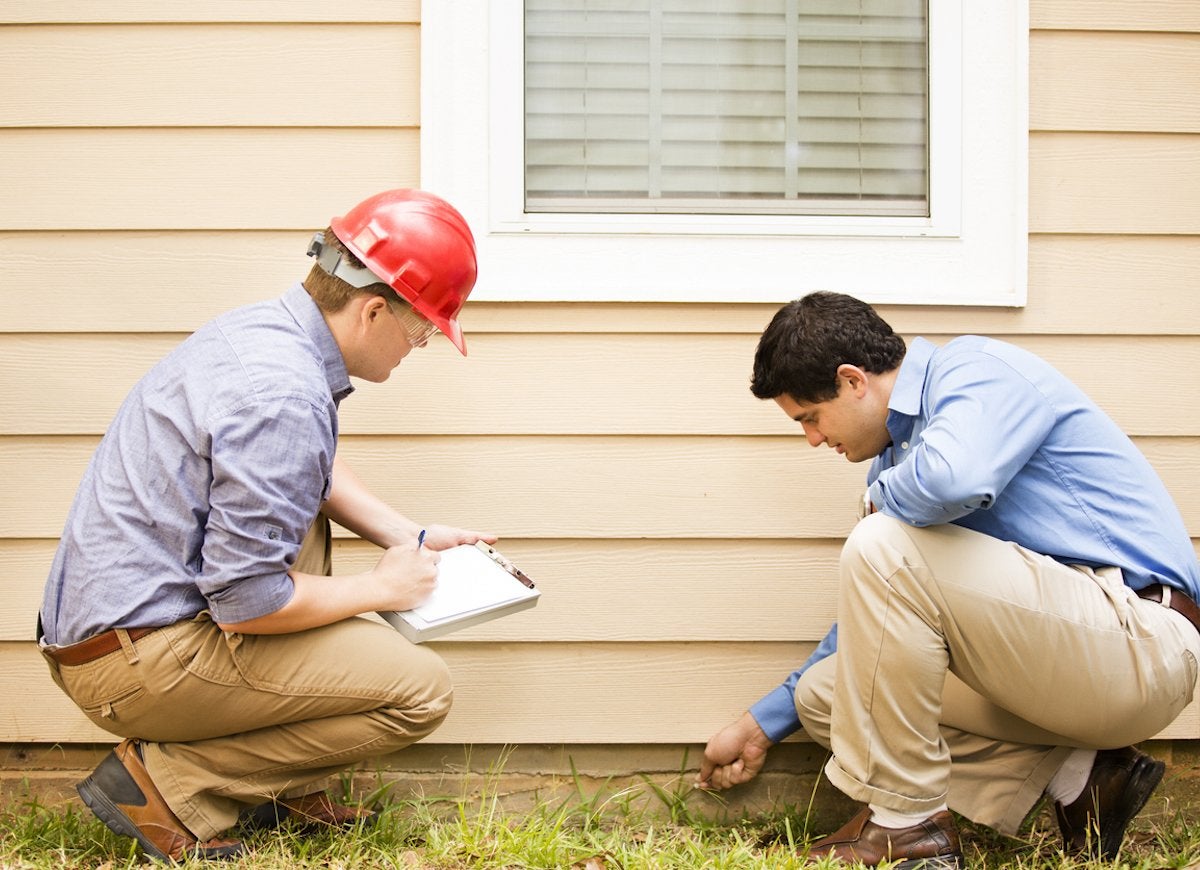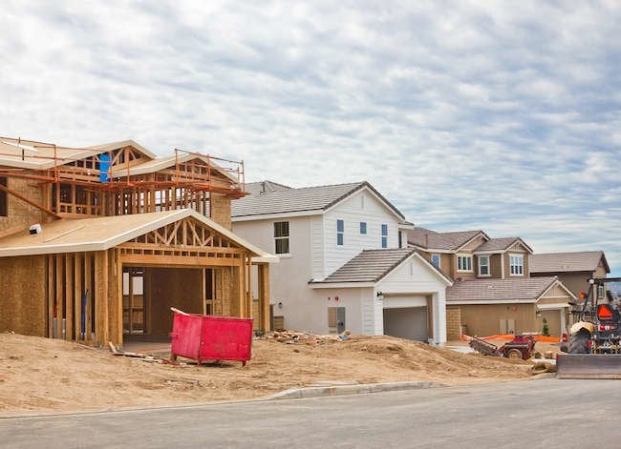We may earn revenue from the products available on this page and participate in affiliate programs. Learn More ›
Contract with a Buyer’s Agent

A buyer’s agent is a real estate agent who is legally bound to represent your interests to the best of her ability. This is important when you’re buying a home out of state because you need an agent who works for you and no one else. Often, buyers make the mistake of looking at a house online and then contacting the listing agent, who is required to represent the seller’s best interest.
Get a Referral

Don’t choose a buyer’s agent at random. Instead, talk to a real estate agent in your current community—one you trust—and ask her to refer you to a buyer’s agent in the community where you’ll be relocating. Realtors (members of the National Association of Realtors) have access to nationwide databases that list agents in other communities according to their success rates. By getting a referral, you can be sure you’ll get an experienced buyer’s agent.
Do Your Research

When you’re not familiar with a community, it’s more important than ever to do a little research. Go online and browse such sites as Urban Institute and American FactFinder to discover important details about a community’s employment potential, weather, economic stability, local crime rate, and much more. For information about goings-on in your target community, contact the Chamber of Commerce and ask if they can send you a free information package.
Start the Process Early

House-hunting is stressful under the best of circumstances, but shopping long distance can lead to major anxiety. Because a house is the single most expensive item most people buy, it pays to start working with an agent long before you’re due to move. Give yourself a minimum of three months, but six months is better so you won’t feel rushed into choosing a new house.
Hire a Relocation Specialist

If your move is work-related, your company may offer professional relocation services. But even if you’re moving for a different reason, it’s still a good idea to hire a relocation specialist. These specialists are equipped to handle all the details you’d handle if you had the time and knew the community. They’ll help you sell and close on your current home and find financing for your new home, and they’ll even arrange for packing and moving services.
Ask for a Real-Time Tour of Each Home

When you can’t go to every showing in person, ask your real estate agent to provide a virtual tour of every house that meets your needs. A virtual tour is a general walk-through of a house; it allows you to see each room, the landscaping, and the home’s exterior as if you were walking through yourself. Once you’ve narrowed down your choices, ask your agent for a virtual tour of the neighborhood and nearby amenities as well.
Related: 10 Things Homeowners Need to Know About Property Rights
Take a Trip Before Making an Offer

Before you make an offer on a house, fly out and see it in person if at all possible. Even with a good agent and a virtual tour, you still need to walk across a home’s floors, breathe in its air, and touch its woodwork to capture the vibes of the house. You’re getting ready to invest big money, so first take a quick trip to make sure the house is what you expect.
Get an Inspection

An inspection is often required as part of a sales contract, but if you’re paying cash or if the house is selling “as is,” you’ll need to order one yourself. A good inspector will check everything from the roof and the foundation to the health of the HVAC system, plumbing, and wiring. You’ll pay $300 to $400 for a professional inspection, but doing so could save you from buying a house with hidden problems.
Research Property Restrictions

Ask your agent to supply you with the phone number of the local building authority and the homeowners association (HOA), if applicable. Contact both agencies and find out about any restrictions that the property may be subject to. For example, the zoning board or the HOA may not allow you to put up a fence or install a swimming pool. You’ll want to know the restrictions before making an offer on a house.
Related: 10 Things No One Tells You About Homeowner Associations
Work with a National Bank

The lenders in your current community may not lend money on a home in another state, and it can be difficult to get a loan in the new community unless you’re able to visit the lender in person. The solution is to apply for a loan through a national bank such as Bank of America or Wells Fargo that has branches in both communities. That way, you can work through your local branch and still receive a mortgage for an out-of-state house.
Request a National Title Company

Title insurance. which protects against problems with title to the property, is required before a lender will grant a mortgage. Call your local title insurers, abstract and title offices, and real estate attorneys to ask if they’re affiliated with a title company in the community where you’re buying. By obtaining title insurance from a national company with affiliated branches in both locations, such as Fidelity National Title Group, you’ll be able to visit your local office when you need to sign papers or get them notarized.
Make Offers Electronically

In today’s fast-moving world, when you’re ready to make an offer on a house you can do so by email or by using a real estate company’s online proposal feature. While you will eventually be required to provide signed paper copies via insured overnight mail, an e-offer with a digital signature is good enough to seal the deal until the paper copies arrive.
Close on Your Existing Home First

Out-of-state closings can fall through if they’re scheduled to take place the same day as the closing on your existing home. Before closing on the house you’re buying, the lender making the loan for your new house must receive the closing statement—or, if applicable, the Housing and Urban Development (HUD) statement—from the closing on your existing home as well as any funds being wired from that sale. The best solution is to schedule the closing on your new house a few days after the closing on your existing home.
Contact Local Utilities

You won’t have a good first impression of your new home if after driving hundreds of miles you arrive at midnight to discover the house has neither electricity nor running water. With all the stress and commotion of moving to another state, it can be easy to overlook some crucial details. To ensure a smooth transition, contact the utility companies in the new community two to three weeks before you move, and send a deposit to ensure that utilities are switched on when you arrive.
Be Aware of Online Scams

House-shopping long distance comes with a few significant downsides. Among these is the risk that you can fall prey to online scammers who may use stolen images to advertise a home at a bargain-basement price and ask you to send them a large earnest payment to clinch the deal. By the time you figure out there is no house, you could be out a good deal of money. This is yet another reason it’s important to hire a good real estate agent.

















